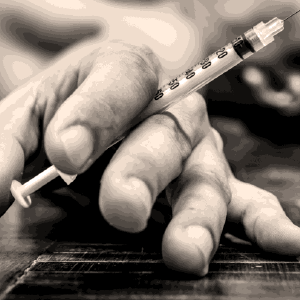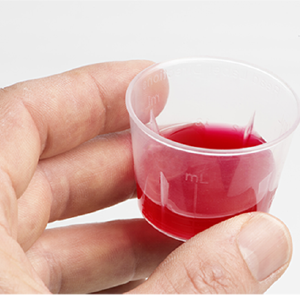Four Ways to Tell
if a Person is Addicted
If you haven’t been around an addicted person much, then you might not realize this fact: They really do tend to have certain behavior characteristics in common. If you know what these characteristics are and are alert for them, you can prevent years of struggle with an unrecognized drug or alcohol problem.
It is very common for the family of an addicted person to go on for years without really grasping the real nature of the problem. They keep trying to be supportive and help the person solve his never-ending problems. But those problems never resolve. That’s because the real problem is addiction and only getting the right kind of support is going to eliminate it.
Some of the Behavioral Characteristics
You Should be Alert for
1. They’re not going to tell the real story. They offer lies, excuses and justifications instead.Buying and using drugs and alcohol are going to create certain problems and the addicted person is going to lie about them. Money is going to be missing — lots of it. Jobs are going to be lost or school will be abandoned. They’ll be missing or keeping an erratic schedule. They could get sick, lose their home or get arrested. Whatever it is, you can be sure that you won’t hear the real reason.Buying and using drugs and alcohol are going to create certain problems and the addicted person is going to lie about them.
Instead, you’ll hear that they hated school so they dropped out. The boss singled them out for persecution so they lost the job. They left the new camera you gave them at a restaurant and it was gone when they went back. They are out of money because their car broke down so they need $500. Their dog is sick and they need money. They lost their wallet with the rent money in it so they need money. You get the idea.
The tip-off is that the excuses and smokescreens just keep coming. It’s one thing after another. Anyone can have a misfortune or three but if they continue, there’s a very good chance you are really looking at addiction.
Also, if there’s one excuse after another for poor performance in school or on the job, then you need to look deeper for the real cause.
The really sad thing is that they are lying to themselves every minute of every day.
2. They are going to try to manipulate family and friends.
If they can keep people from looking too closely at what is going on, or from demanding changes, then they can continue using drugs. It’s not really a conscious desire to use drugs but a deep craving and need that overwhelms all other intentions, like the intention to survive well. To continue their use of drugs, therefore, they need to keep parents, a spouse, siblings, friends and employers from probing too deeply.

So they will distract, accuse, turn the tables — anything they can think of to divert attention away from what they are doing so friends or family will give up and go away.
How will they do this? There’s an endless number of ways. You might hear statements like these:
- “It’s your fault I’m under so much stress.”
- “If you were more supportive, I would not be so upset all the time.”
- “You never give me any space or privacy. Why don’t you leave me alone?”
- “So I’m using drugs once in a while. I’m in control of it. I just use them to relax a little.”
- “If you loved me you wouldn’t keep after me all the time.”
- “You’re the one with problems!”
- “How could you go through my stuff?”
- “That’s not mine, someone asked me to hold it for them.”
- “Why don’t you ever believe me?”
- “Why are you always suspicious of me? Why don’t you just leave me alone?”
- “Why don’t you trust me? What’s your problem?”
- “You’re the one who’s paranoid, not me.”
- “Don’t keep trying to change me!”
- “That job was lousy anyway, I’ll get another one right away.”
- “If you’re so mad at me, give me your wedding ring.”
These statements are all calculated to throw someone else off, upset them and destroy their ability to effectively get to the real causes of the problems that have been showing up.
When you see a man or woman in a relationship with someone they know is addicted but they stay in the relationship, all the while saying, “Yes, I know I should go, I know she (or he) is no good for me…”, chances are very good that this kind of manipulation is occurring daily. The sober person is so confused and introverted that he can’t make a reasonable decision to save himself.
3. There are normally criminal acts taking place.
Very few addicts have the funds to pay for years of drugs. Even wealthy people can blow a fortune on drugs and wind up broke. Most addicted people turn to criminal acts so they can continue to obtain the drugs they feel they can’t live without.
Here too, the list is endless. Robberies, burglaries, assaults, muggings, stealing wiring or pipes from empty houses, dealing drugs, embezzling, pawning items out of the homes of family or friends, prostitution, forged checks, prescription fraud, insurance fraud, identity theft, car theft. And then, of course, there’s possessing drugs and driving while intoxicated or under the influence of drugs.
The demeaning effects of drugs lower a person’s responsibility and accountability. He gradually becomes more capable of criminal acts as he used more drugs. He will probably find himself committing acts he never would have considered while he was sober, like pawning his mother’s wedding ring or stealing his children’s Christmas presents. The good news is that the right help during rehab can turn this situation around. When a person feels good sober, he doesn’t have to commit crimes any more.
4. An addicted person is very likely to become abusive.
With all the lies, manipulations and criminality that’s been occurring, an addicted person has so much to hide. The only thing that keeps him from being buried under a landslide of guilt is the continued use of drugs or alcohol. That guilt and the stress he feels can show up as abuse of those in his environment.
The unlucky target could be a spouse, children, parent or even an elderly grandparent. Some grandparents have been victimized by grandchildren lost in addiction — these seniors are abused, trapped in their own homes and forced to hand over their valuables.
When a person is high, stoned or drunk, anyone in the environment can become a target of abuse. There are unfortunately plenty of stories of addicted people in emergency rooms assaulting medical staff. Many emergency department staff have been injured, even to the point of receiving broken bones. If the addicted person becomes abusive with law enforcement personnel, the outcome can be very serious.
It’s possible for a person to manifest some of these signs and not be a full-blown addict. But if you are looking at all of these signs, the chances are very great that the core situation is addiction. The problems will not go away and stay away until addiction is addressed properly.
The Answer is Effective Rehabilitation
The good news is that it is possible to recover, even from an addiction that shows up in all these ways. The Narconon drug and alcohol rehabilitation program has a fifty-year history of helping restore people to their true, honest and hardworking natures. It takes longer than the 28 days of many rehab programs for a person to unburden themselves of all the harm and guilt accumulated during years of addiction. It takes additional time to recover the freshness of thought and perception that were lost due to drug use. And then it takes even more time to build in new sober living skills.
That’s why there is no set time period for the rehab program at Narconon Arrowhead. Each person progresses at his or her own rate, making one breakthrough after another until finally they can control their decisions, actions and futures once again.
Learn how the Narconon Arrowhead rehab program can bring someone you care about back from the manipulation and lies of addiction. Call us today at 1-800-468-6933 to get someone you love on the road to recovery.


